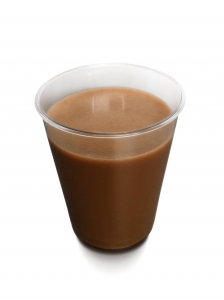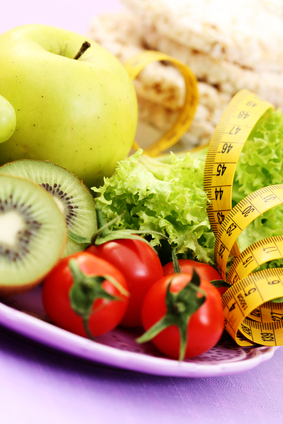To Eat—or Not to Eat: The Pre-Exercise Question
What should I eat before I exercise?
That’s the question athletes of all ages and abilities most commonly ask when I’m presenting a sports nutrition workshop. While most people expect a simple response, such as “Eat a banana” or “Have a slice of toast,” the answer is actually complex and depends on many factors. After all, we are each an experiment of one.
The following information can help you figure out the best way to fuel your body before you exercise.
Does what you eat within 30 minutes of exercise offer performance benefits?
Your body can actually digest and use the food you eat before you exercise as long as you are exercising at a pace you can maintain for more than 30 minutes. Research also suggests that eating a snack just five minutes before moderate exercise can improve performance compared to exercising on empty. Yet, if you will be doing intense exercise—an erg test, track workout, or heavy weight lifting session, you should experiment to determine the best time to eat. You will likely feel more comfortable allowing two or three hours for your pre-exercise food to digest and empty from the stomach.
Will pre-exercise food cause heartburn or nausea?
While many people can comfortably tolerate pre-exercise food, others experience stomach distress. If the food you eat within the hour pre-exercise “talks back to you,” figure out:
- Does the discomfort happen if you allow two or more hours for the pre-exercise food to be digested?
- Does the type of food cause the problem? That is, do a few pretzels settle well but a cup of yogurt feels acidic?
- Did you eat too much? Would half a bagel with a skimming of peanut butter digest better than the whole bagel?
- Are you doing very high intensity work? If so, your stomach will shut down and your body will want to get rid of the contents….
What if I exercise in the early morning, before my stomach is awake?
If you drag yourself out of bed to exercise at early o’thirty, before your body and your mind are fully awake, you might not want to eat much of anything. I know of 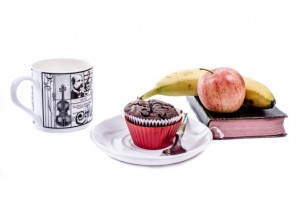 many rowers, runners, swimmers, and ice hockey players who eat their breakfast the night before. That is, instead of eating a bowl of cereal at 5:30 a.m., they enjoy it at 10:00 pm, before going to bed. This food helps them wake up in the morning with a normal blood glucose (blood sugar) level, and provides energy for an enjoyable and effective workout.
many rowers, runners, swimmers, and ice hockey players who eat their breakfast the night before. That is, instead of eating a bowl of cereal at 5:30 a.m., they enjoy it at 10:00 pm, before going to bed. This food helps them wake up in the morning with a normal blood glucose (blood sugar) level, and provides energy for an enjoyable and effective workout.
What if pre-exercise food contributes to diarrhea and undesired pit stops?
Food generally takes one or two days to travel through the intestinal tract. Hence, an undesired pit-stop during a long run on Sunday might relate to food that you ate the day or two before. That is, if you ate an unusually large bowl of high-fiber bran cereal on Saturday when carbo-loading for the Sunday long run, you might end up wishing you’d carbo-loaded on low-fiber corn flakes or Rice Chex. Or maybe that bean burrito on Friday night caused the problem? You can try tracking your food and fiber intake, looking for suspicious patterns.
In general, exercise speeds up intestinal motility. With time, most bodies can adjust if you train your intestines to handle pre-exercise food. For example, one runner started by nibbling on one pre-exercise pretzel, and then two, and gradually built up his tolerance to the suggested 100 to 300 calories of carbs consumed within the hour pre-exercise. He enjoyed the benefits of feeling stronger at the end of his runs.
Should I purposefully not eat before I exercise because I want to lose weight while I exercise?
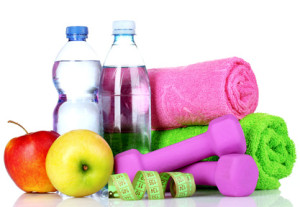 One client reported she didn’t eat before she went to the gym because she was exercising to burn calories. Why would she want to add calories to her diet? Wouldn’t that defeat the main purpose of her workouts?
One client reported she didn’t eat before she went to the gym because she was exercising to burn calories. Why would she want to add calories to her diet? Wouldn’t that defeat the main purpose of her workouts?
Think again: If you consume 100 to 300 calories before you workout, you will be able to exercise harder, at higher intensity and burn more calories than if you schlep through the session on fumes, with little enthusiasm or enjoyment. (Plus, you will not be as hungry afterwards and will be able to refrain from over-indulging.) Trust me, the plan to exercise-on-empty is hard to sustain; it is not fun. Just notice the drop-off in attendance at the gym between Jan. 1 and Feb. 1…
Food is fuel. As an athlete or a fitness exerciser, you need to fuel your body appropriately—including pre-exercise. Just as you put gas in your car before you take it for a drive, you want to put fuel in your body before you embark on a busy day. Be as nice to your body as you are to your car, please!
By eating nothing before my morning workout, won’t I burn more fat?
You may have heard you can burn more fat during low-level “fat burning exercise” if you do not eat beforehand. Yes, you might burn more fat than carbohydrates, but burning fat differs from losing body fat. You lose body fat when, at the end of your day, you have created a calorie deficit. That is, you will lose body fat (weight) if you have eaten only 1,800 calories by bedtime, even though you burned off 2,200 calories during the day. By fueling pre-exercise, you can have a better workout—and perhaps burn more calories than if you were to run on fumes.
To lose body fat, I suggest you fuel adequately by day, so you will have energy to enjoy an active lifestyle, and then lose weight at night by eating a lighter dinner. Fueling by day and dieting by night (so you lose weight when you are sleeping), is far preferable to restricting by day only to over-indulge at night due to extreme hunger.
Can training on empty enhance endurance?
Some recent research suggests that highly competitive athletes might be able to enhance their performance if they train under-fueled a few times a week. These depletion workouts can alter muscle metabolism so that the muscles are able to compete better when fully fueled.
If you want to “train low,” be sure to do your important high intensity workouts when you are well fueled. You cannot (enjoyably) exercise hard when you are running on fumes. Your performance will suffer unless you do some high quality hard workouts when you are well fueled.
From The Athlete’s Kitchen; Copyright: Nancy Clark, September 2014
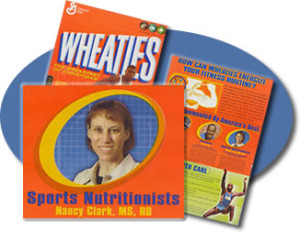 Boston-area sports nutritionist Nancy Clark, MS, RD offers one-on-one consults with both casual and competitive athletes. Her private practice is in Newton, MA (617-795-1875). For information about her Sports Nutrition Guidebook (2014) and food guides for runners, cyclists and soccer players, see www.nancyclarkrd.com. For online education, see www.NutritionSportsExerciseCEUs.com
Boston-area sports nutritionist Nancy Clark, MS, RD offers one-on-one consults with both casual and competitive athletes. Her private practice is in Newton, MA (617-795-1875). For information about her Sports Nutrition Guidebook (2014) and food guides for runners, cyclists and soccer players, see www.nancyclarkrd.com. For online education, see www.NutritionSportsExerciseCEUs.com

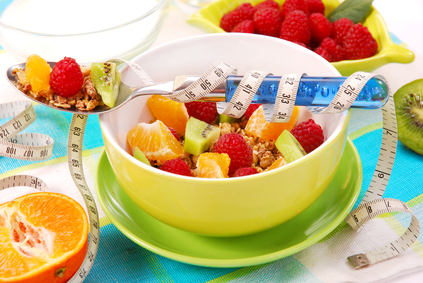
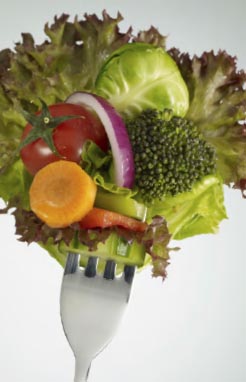

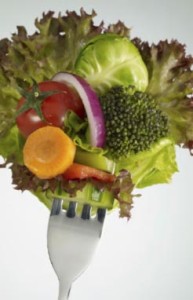 • Plan to fill your food buckets with foods in their natural state, and limit your intake of highly processed foods. Some health professionals believe additives and food coloring in processed foods can trigger hyperactivity in certain people. Plus, highly processed foods often offer less nutritional value and fewer health benefits. Shop for fresh foods along the outside aisles of the grocery store: fresh fruit, vegetables, lean meats, low fat dairy, and whole grain breads.
• Plan to fill your food buckets with foods in their natural state, and limit your intake of highly processed foods. Some health professionals believe additives and food coloring in processed foods can trigger hyperactivity in certain people. Plus, highly processed foods often offer less nutritional value and fewer health benefits. Shop for fresh foods along the outside aisles of the grocery store: fresh fruit, vegetables, lean meats, low fat dairy, and whole grain breads.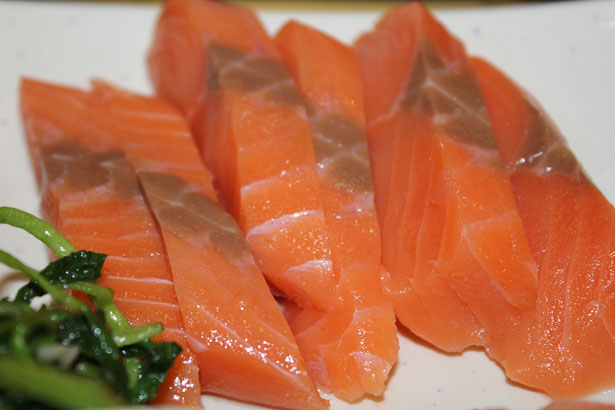
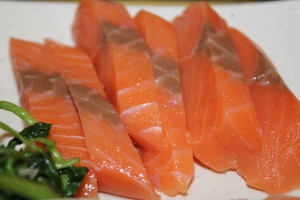 y need to buy these products to support your athletic performance. The question arises: Are there really special nutrients or components of food that can help athletes to go faster, higher or stronger? If so, can they be consumed in the form of whole foods or do we actually need special commercial supplements?
y need to buy these products to support your athletic performance. The question arises: Are there really special nutrients or components of food that can help athletes to go faster, higher or stronger? If so, can they be consumed in the form of whole foods or do we actually need special commercial supplements?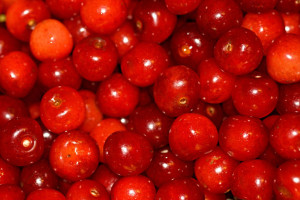 Do tart (Montmorency) cherries offer any benefits to sports performance? If so, what’s the best way to consume them?
Do tart (Montmorency) cherries offer any benefits to sports performance? If so, what’s the best way to consume them?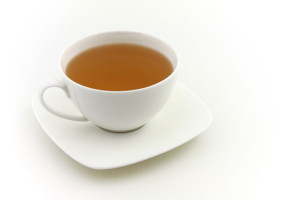 Green tea reportedly enhances fat oxidation and helps with weight loss, particularly when combined with caffeine. But the amount of additional fat burned is minimal, and the 10 to 12 cups of green tea needed to create any effect is a bit overwhelming. (Hence, most studies use a green tea extract.) Because green tea has not been studied in lean athletes, we can only guess that it is unlikely to offer a significant improvement in body composition.
Green tea reportedly enhances fat oxidation and helps with weight loss, particularly when combined with caffeine. But the amount of additional fat burned is minimal, and the 10 to 12 cups of green tea needed to create any effect is a bit overwhelming. (Hence, most studies use a green tea extract.) Because green tea has not been studied in lean athletes, we can only guess that it is unlikely to offer a significant improvement in body composition.

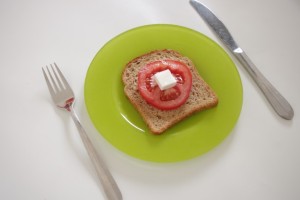 Neither! A better approach is to define nutrient needs according to body weight. For example, the International Olympic Committee developed these guidelines:
Neither! A better approach is to define nutrient needs according to body weight. For example, the International Olympic Committee developed these guidelines: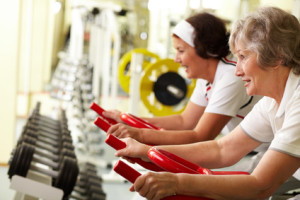 Training with low glycogen stores (“train low”) drives up the metabolic adaptations to burn more fat. By burning fat instead of glycogen, you’ll spare the limited glycogen stores. Theoretically, this should enhance stamina and endurance because glycogen depletion is associated with fatigue. To date, “training low” has been most effective in research with untrained individuals. Athletes who exercise with depleted glycogen are unable to exercise at high intensity and that may hinder performance.
Training with low glycogen stores (“train low”) drives up the metabolic adaptations to burn more fat. By burning fat instead of glycogen, you’ll spare the limited glycogen stores. Theoretically, this should enhance stamina and endurance because glycogen depletion is associated with fatigue. To date, “training low” has been most effective in research with untrained individuals. Athletes who exercise with depleted glycogen are unable to exercise at high intensity and that may hinder performance.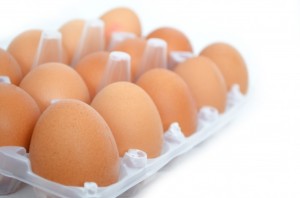
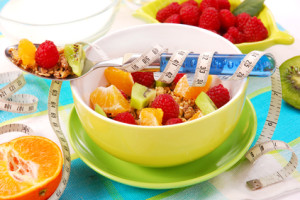 Adding on exercise does not equate to losing body fat. In a 16-week study, untrained women (ages 18 to 34) built up to 40 minutes of hard cardio or weight lifting three days a week. They were told to not change their diet, and they saw no changes in body fatness.(1) Creating a calorie deficit by eating less food seems to be more effective than simply adding on exercise to try to lose weight.
Adding on exercise does not equate to losing body fat. In a 16-week study, untrained women (ages 18 to 34) built up to 40 minutes of hard cardio or weight lifting three days a week. They were told to not change their diet, and they saw no changes in body fatness.(1) Creating a calorie deficit by eating less food seems to be more effective than simply adding on exercise to try to lose weight.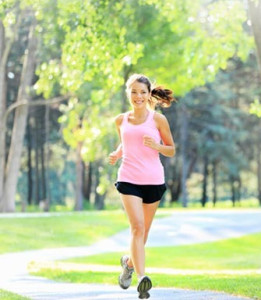 MYTH: If you train for a marathon or triathlon, surely your body fat will melt away.
MYTH: If you train for a marathon or triathlon, surely your body fat will melt away. looking at exercise for weight loss, the men lost 11.5 pounds and the women maintained weight, even though they did the same amount of exercise.(6) In another study, men who did an 18-month marathon training program reported eating about 500 more calories per day and lost about five pounds of fat. The women reported eating only 60 more calories, despite having added on 50 miles per week of running. They lost only two pounds.(7)
looking at exercise for weight loss, the men lost 11.5 pounds and the women maintained weight, even though they did the same amount of exercise.(6) In another study, men who did an 18-month marathon training program reported eating about 500 more calories per day and lost about five pounds of fat. The women reported eating only 60 more calories, despite having added on 50 miles per week of running. They lost only two pounds.(7)
 • Water is the solvent for biochemical reactions. Your body cannot function without sufficient water, as noted by the fact that athletes die from dehydration.
• Water is the solvent for biochemical reactions. Your body cannot function without sufficient water, as noted by the fact that athletes die from dehydration. • Coffee is a popular source of water. Although once thought to have a diuretic effect, current research indicates coffee (in amounts normally consumed) hydrates as well as water over a 24-hour period. That is, after drinking coffee, you may urinate sooner, but you will not urinate more than you consume. Army research on caffeine and dehydration confirms coffee is an acceptable source of fluids for athletes, even during exercise in the heat. Hence, coffee and other caffeinated beverages such as tea or cola count towards your water intake.
• Coffee is a popular source of water. Although once thought to have a diuretic effect, current research indicates coffee (in amounts normally consumed) hydrates as well as water over a 24-hour period. That is, after drinking coffee, you may urinate sooner, but you will not urinate more than you consume. Army research on caffeine and dehydration confirms coffee is an acceptable source of fluids for athletes, even during exercise in the heat. Hence, coffee and other caffeinated beverages such as tea or cola count towards your water intake. st athletes who lose more than 2% of their body weight (3 lbs for a 150-pound athlete) lose both their mental edge and their ability to perform optimally in hot weather. Yet, during cold weather, you are less likely to experience reduced performance, even at 3% dehydration. Three to 5% dehydration does not seem to affect muscle strength or performance during short intense bouts of anaerobic exercise, such as weight lifting. But distance runners slow their pace by ~2% for each percent body weight lost by dehydration. That means, if you weigh 150 pounds and lose 3 pounds sweat (2% dehydration), your 8-minute mile slows to an 8:19 pace. That’s preventable!
st athletes who lose more than 2% of their body weight (3 lbs for a 150-pound athlete) lose both their mental edge and their ability to perform optimally in hot weather. Yet, during cold weather, you are less likely to experience reduced performance, even at 3% dehydration. Three to 5% dehydration does not seem to affect muscle strength or performance during short intense bouts of anaerobic exercise, such as weight lifting. But distance runners slow their pace by ~2% for each percent body weight lost by dehydration. That means, if you weigh 150 pounds and lose 3 pounds sweat (2% dehydration), your 8-minute mile slows to an 8:19 pace. That’s preventable!
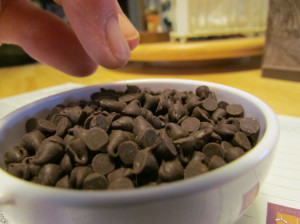
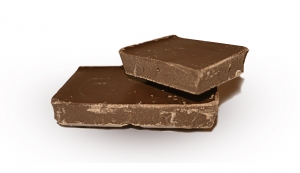 However, less-processed dark chocolate can be considered a healthier choice. Chocolate is made from cocoa, a plant that is a rich source of health-protective phytochemicals (just like you’d get from fruits, vegetables, and whole grains). Two tablespoons natural cocoa power (the kind used in baking) offers the antioxidant power of 3/4 cup blueberries or 1.5 glasses red wine. Unfortunately, dark chocolate has a slightly bitter taste and most people prefer the sweeter milk chocolate, a poorer source of phytochemicals. (We need to raise our children on dark chocolate, so they will they learn to prefer it!)
However, less-processed dark chocolate can be considered a healthier choice. Chocolate is made from cocoa, a plant that is a rich source of health-protective phytochemicals (just like you’d get from fruits, vegetables, and whole grains). Two tablespoons natural cocoa power (the kind used in baking) offers the antioxidant power of 3/4 cup blueberries or 1.5 glasses red wine. Unfortunately, dark chocolate has a slightly bitter taste and most people prefer the sweeter milk chocolate, a poorer source of phytochemicals. (We need to raise our children on dark chocolate, so they will they learn to prefer it!)